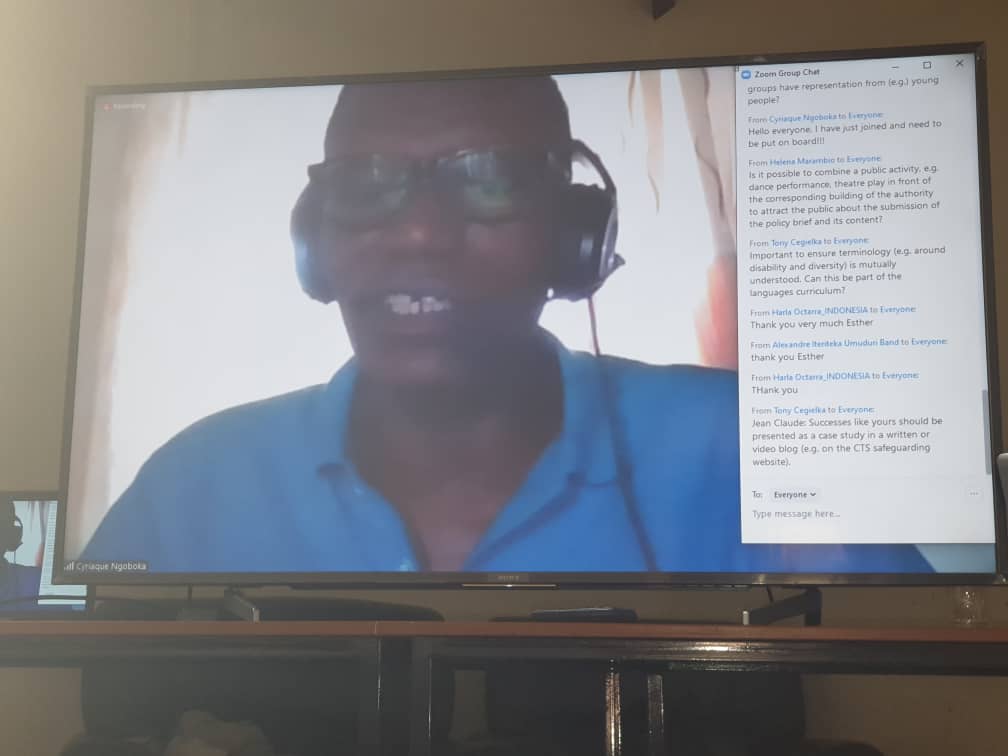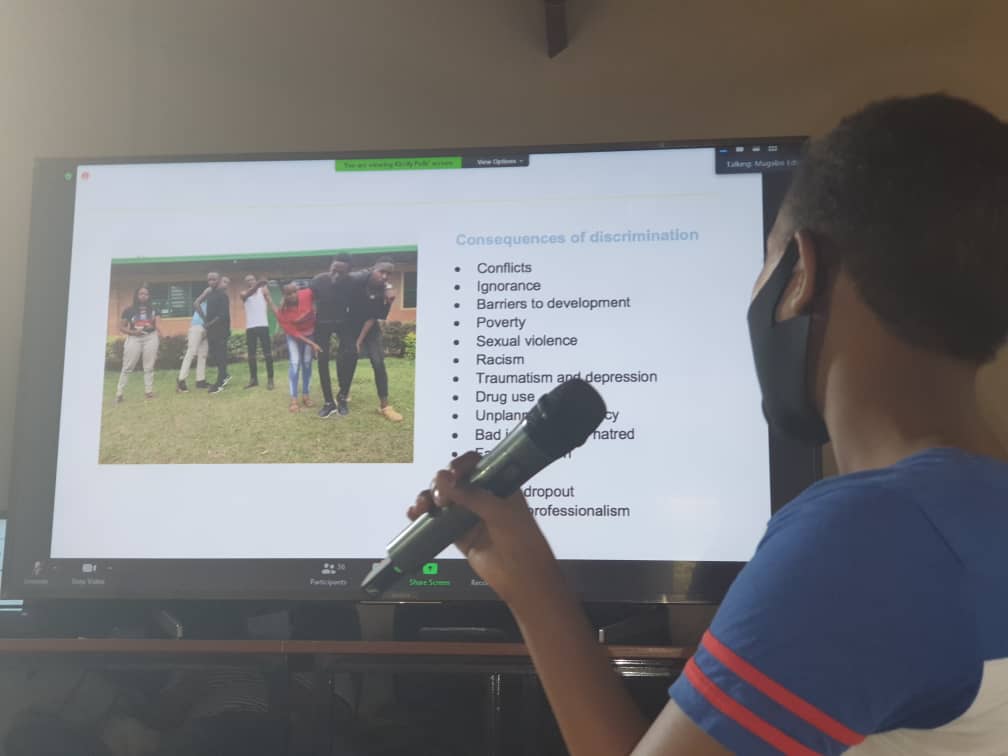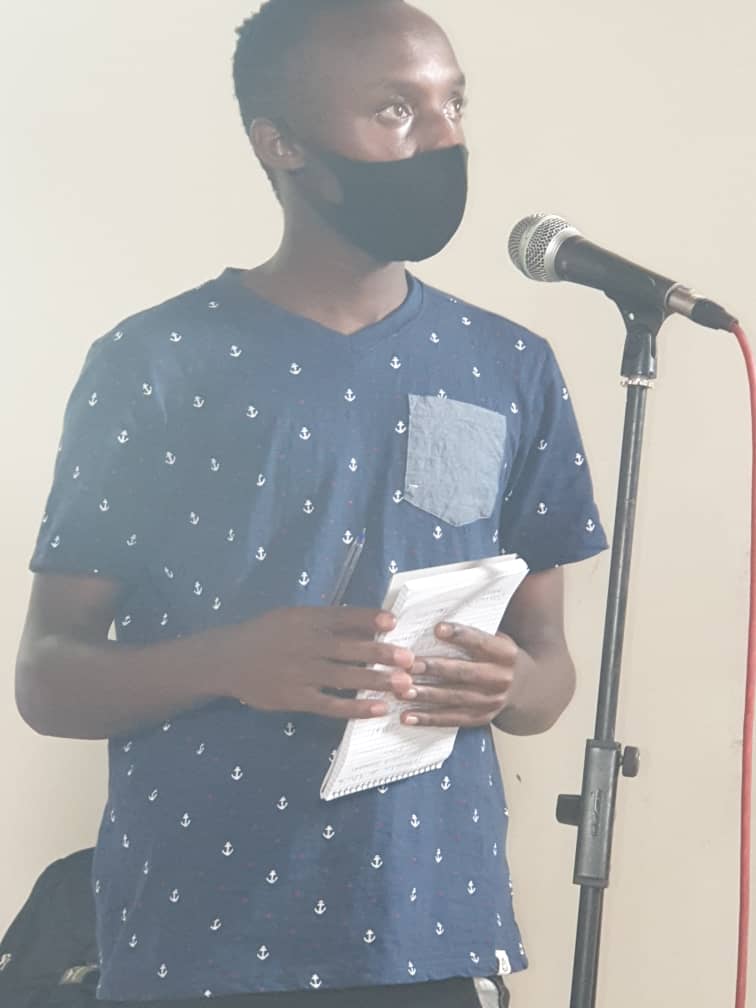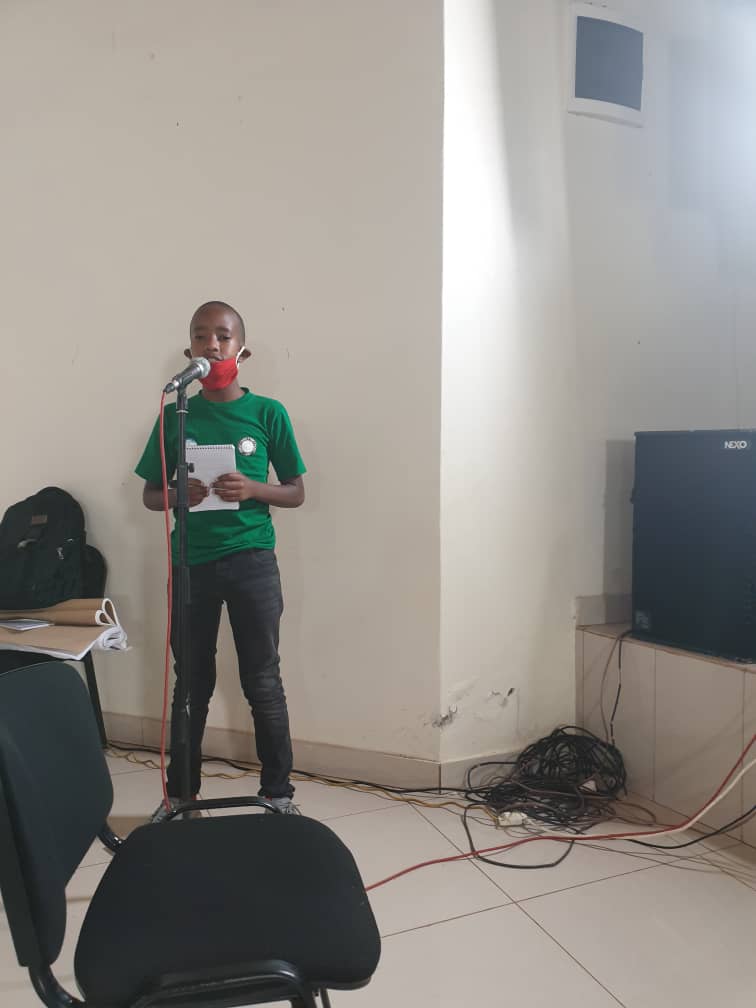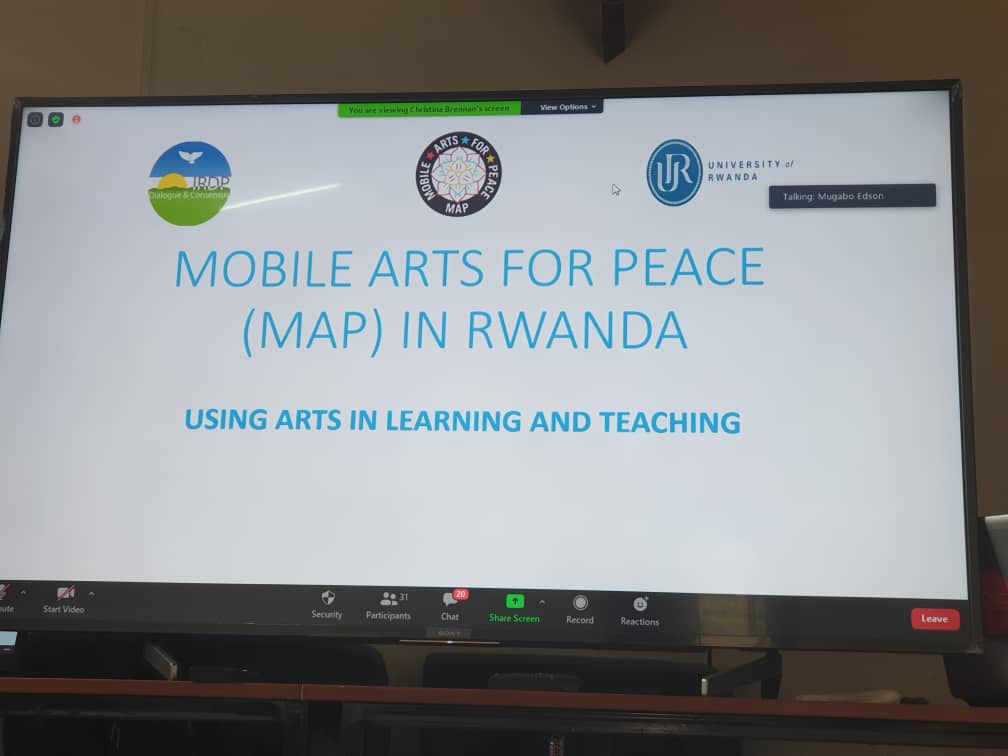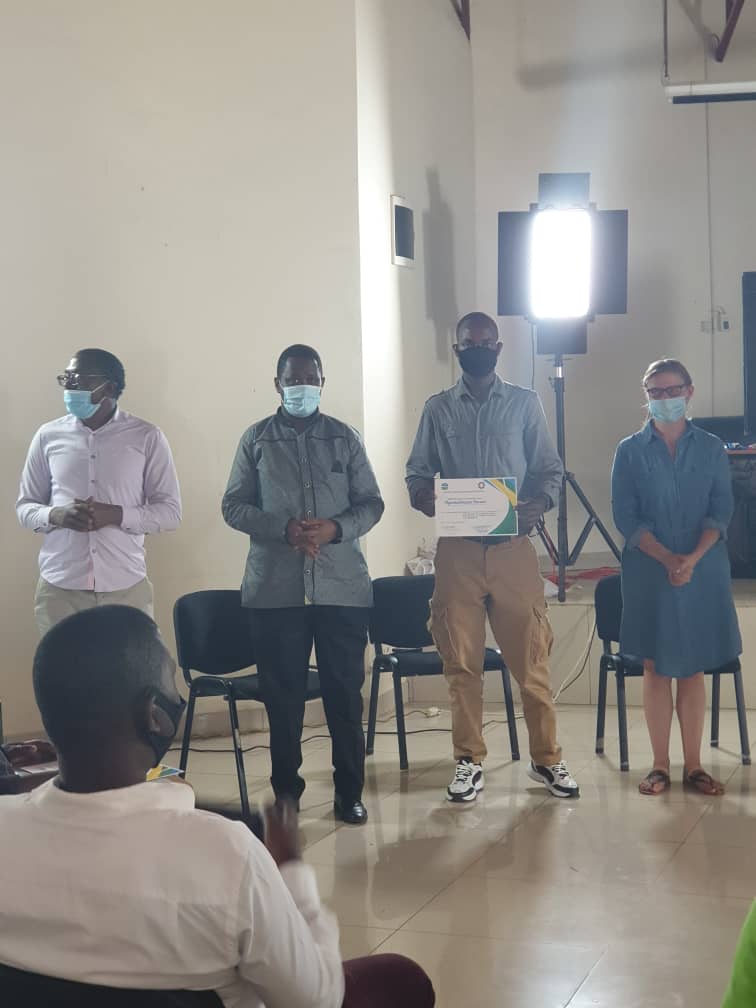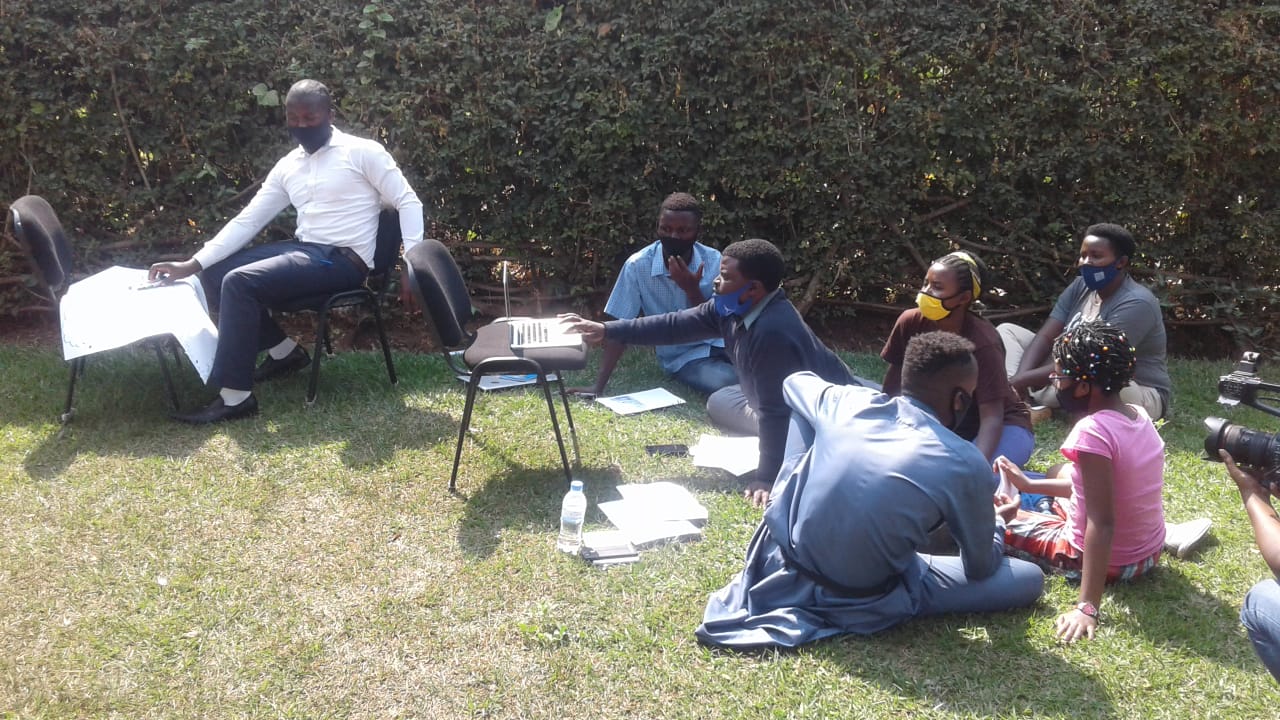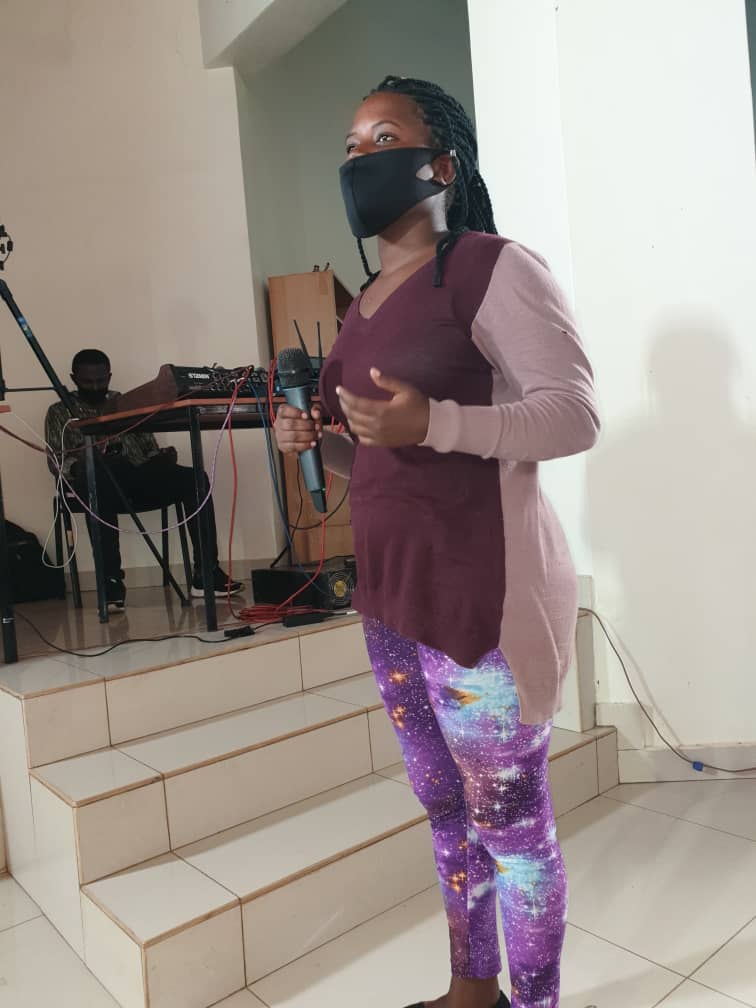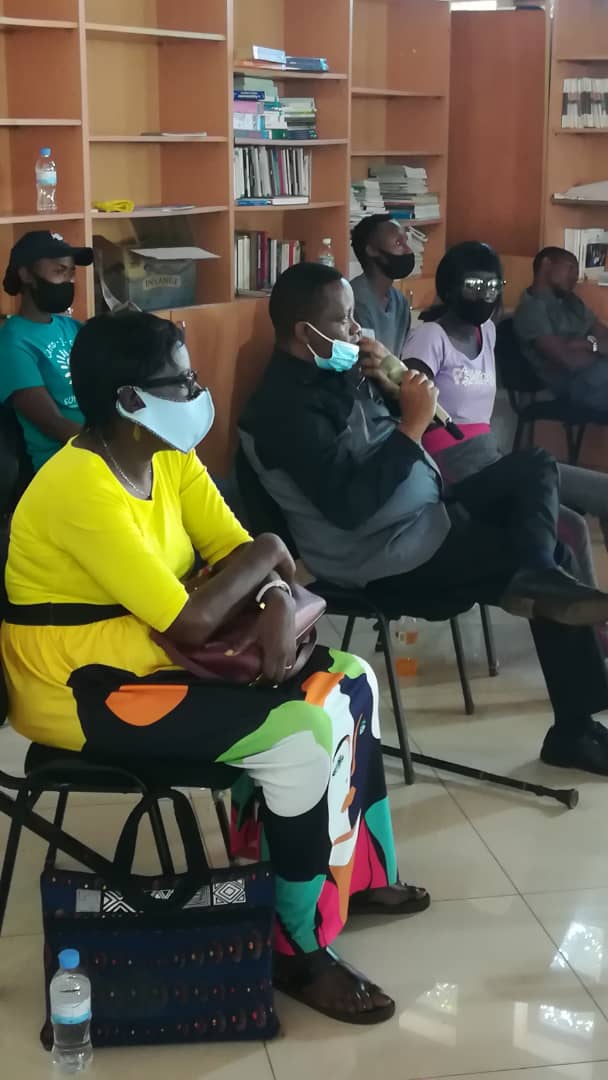Blog
Introduction to Mediation and Conflict Resolution: Arts-Based Research for Education and Peace-building Conference
- August 11, 2020
- Posted by: Emmanuel
- Category: Uncategorized
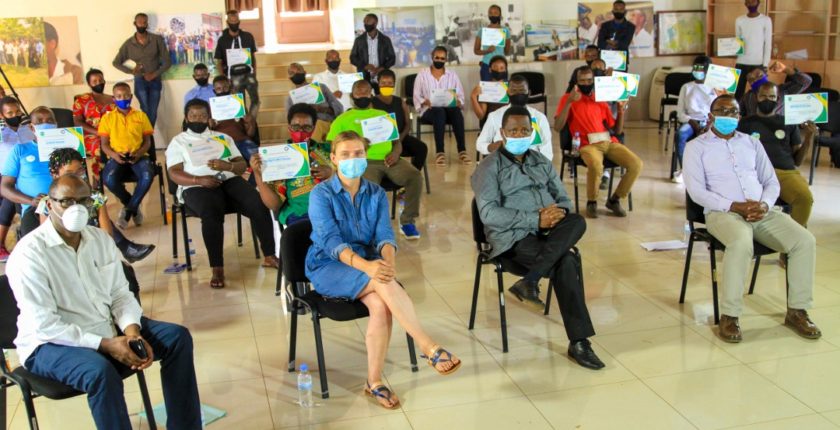
From 5 August to 7 August 2020, the Institute for Research and Dialogue for Peace (IRDP) hosted the Mobile Arts for Peace (MAP) and Changing the Story (CST): Arts-Based Research for Education and Peace-building Conference. The Conference brought together about 40 participants online from around the globe, including the United Kingdom, Colombia, Kosovo, Kyrgyzstan, Cambodia, Nepal and Indonesia, as well as 38 participants, including students, teachers and dialogue facilitators, physically at IRDP from different regions of Rwanda, who have been trained in the Mobile Arts for Peace (MAP) approach. During zoom sessions that span over three days, participants discussed and exchanged how arts can be used to advance peace in societies emerging from conflict.
Mobile Arts for Peace (MAP) is a practice-as-research project supported by the UK’s Global Challenges Research Fund (GCRF) and the Arts and Humanities Research Council (AHRC) as part of the larger project Changing the Story: Building Inclusive Societies for Young People. MAP’s aim is to work with young people, educators, cultural artists and civil society organizations to inform national education curricula in music, dance and drama. Championed by the Director of IRDP, Dr. Eric Ndushabandi, and Professor Dr. Ananda Breed from the University of Lincoln, MAP works alongside partners to design and deliver arts-based peace education projects.
On 5 August, IRDP had invited policy-makers from different organizations, including the National Unity and Reconciliation Commission, Aegis Trust, Never Again Rwanda, UNESCO and the Rwandan Education Board, to share the Rwandan experience of the role of arts in peace education. The presentations and discussions showed how art has been integrated into the initiatives of all of these organizations to complement more traditional approaches to help the Rwandan society to come to terms with the dramatic events of the 1994 Genocide Against the Tutsis.
On 6 August, the conference showcased how art and performance are concretely used as a tool for peace education in Rwanda. Participants watched a forum theatre performance that had been created by MAP participants in Rwanda revealing the struggles of an impaired student facing discrimination at school. In breakout groups, participants discussed the root causes of this discrimination and possible solutions at the family, community and national level. The exchanges will feed into a policy brief, which will be shared with policy-makers in Rwanda and beyond.
On 7 August, participants of the conference dived deeper into MAP methodologies. Students and teachers shared their experience of how MAP changed their way of learning and teaching. They highlighted the arts- and student-centered approach of MAP, which helps to empower students and to promote their self-confidence. The young students stressed how MAP makes them feel like equal participants in policy discussions and how the MAP approach helps them to overcome fear to participate actively in conversations at school or with policy-makers.
In addition, the Rwandan participants at IRDP were trained in Mediation and Conflict Resolution by IRDP’s guest researcher Dr. Katrin Wittig, post-doctoral researcher at the University of Cambridge. Over two days, participants discussed the fundamentals of peace mediation and conducted a conflict analysis and a mediation simulation using arts-based tools to better understand conflict root causes.
